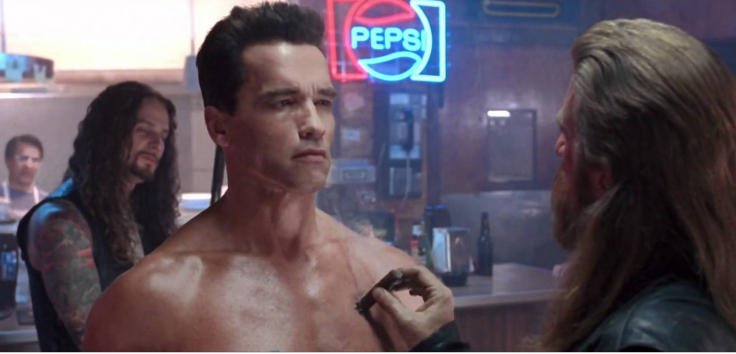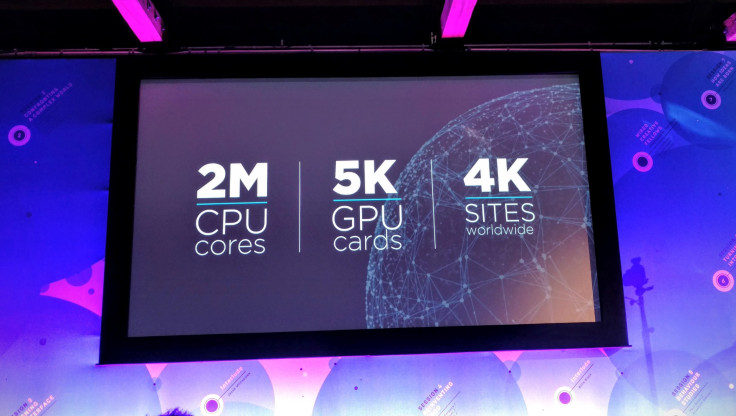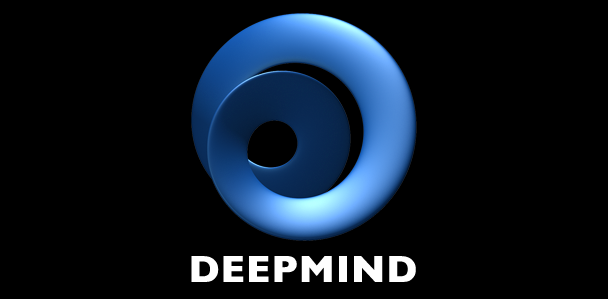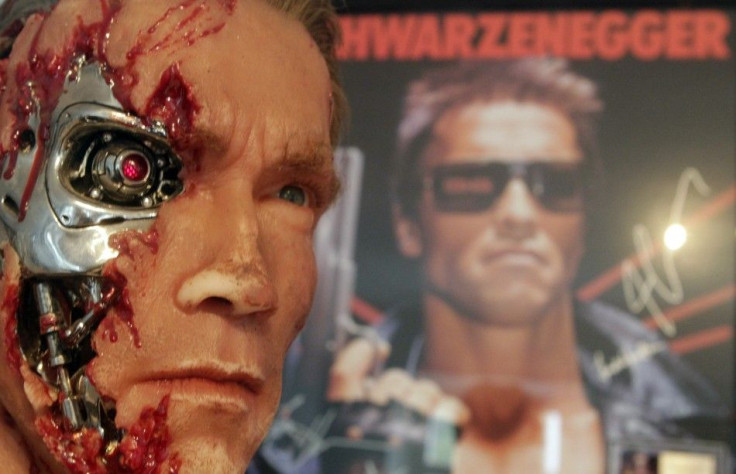Artificial Intelligence Is Here To Help You Pick The Right Shoes

LONDON -- "I need your clothes, boots and your motorcycle." When the T-1000 uttered this iconic line in "Terminator 2," not many people would have predicted that just over a decade later, a Skynet-like artificial intelligence system would be helping them pick out their next pair of shoes. But that is just what's happening today, with one of the world's most powerful AI networks teaming up with Shoes.com to help you pick the perfect pair of pumps.
Sentient Technologies has created what it calls the world's biggest artificial intelligence network and is using it to solve some of the world's biggest problems, such as improving financial markets and helping identify symptoms of disease faster. But right now it's taking on a very thorny problem: finding the right shoes.
Sentient, which is based in San Francisco and is the world's most-funded AI company, is run by Antoine Blondeau, who helped develop the system that would become Apple's Siri personal assistant. The company has built an AI network comprising 2 million CPUs and 5,000 graphics cards distributed in 4,000 locations around the world. That's a massive scale, but it's just the beginning. Says Blondeau, "This is first base, this is year one in the decade one of AI."
Speaking at the Wired 2015 conference in London on Friday, Blondeau revealed his company's latest collaboration with Shoes.com to make shopping for footwear more intuitive. Making online shoe shopping better may not seem significant, but Blondeau told International Business Times it's just one example of what this technology can do, by adding visual perception to the computing power it has already created.
"By making more-informed decisions, chances are you will make better decisions. At this company we try to solve real problems. ... We try to apply technology to what will make a difference, change people's lives."
The AI assistant, which will roll out on Shoes.com in the next few weeks, will dynamically curate the content of the store depending on your shopping preferences, instantly presenting you with an ever-changing catalog of shoes as you tap on the ones you like.
"We always say 'A picture is worth a thousand words' or 'You know it when you see it.' That is what we are doing here," Blondeau says. The system doesn't rely on tagging, typing or submitting images of what you are looking for, but it does provide "friction-free access to things you want but cannot Google."
Eureka Moment
After working with Blondeau on the program that would become Siri, Babak Hodjat, co-founder of Sentient, was looking for a new challenge. A few years ago, he had his eureka moment while in the shower: "Suddenly it came to me very, very clearly. If a species like [humans] can network intelligence, would it be possible for us to network AI?"
Blondeau's goal was to build "an infinitely scalable system that would take on huge problems, world problems." The starting point for Blondeau's ambitious plans was Darwin's theory of evolution, which had been ported into software in the second half of the last century by John Holland, creating a new AI discipline called evolutionary intelligence.
This led to one of Holland's students, John Koza, breeding so-called autonomous software agents that were able to solve enormously complex problems, powered by a computing cluster with 1,000 CPUs called the invention machine. This machine was able to help reinvent logic circuits and make factories work more efficiently.
Blondeau and Hodjat asked themselves: "Can we take that body of work and do better, advance the science and take it to the next level?"
The Next Level
The problem Blondeau and Hodjat set out to address was the financial markets. To solve the "extremely dynamic and complex system" that is "extraordinarily difficult to survive in," the pair needed to scale the system so that it could run on a million CPUs.
After years of work designing the system to be able to scale it to the size they needed, Sentient Technologies bred its first AI traders, with the system now creating trillions of traders. "They are born, they compete, they survive, they die, they thrive, they reproduce, they mutate, they become a species that eventually begins to dominate its environment," Blondeau said.
The next challenge they turned their attention to was healthcare and in particular the intensive care units of hospitals, where lots of data is collected but not utilized. What the company wanted to build was an AI nurse that is "always on the clock, always on the lookout for you, monitoring your vitals at any given time, preempting problems."

In partnership with the Massachusetts Institute of Technology, Sentient Technologies built a system that would specifically address the problem of the blood disease sepsis. Sepsis is the single biggest problem ICUs have to deal with, affecting 1 million people each year in the U.S., with a mortality rate between 28 and 50 percent, depending on the year you look at; that's higher than prostate cancer, breast cancer and AIDS combined. Add to this the fact that sepsis costs ICUs $20 billion every year, and it is clearly a problem that needs to be addressed.
Working with St. Michael's Hospital in Toronto, Sentient learned that if doctors were given a 30-minute warning that sepsis was coming, they would be able to treat the problem. After a year of collecting arterial blood pressure data "beat by beat" from 6,000 patients, they set their AI nurse to work; it was able to predict the onset of sepsis with over 91 percent accuracy.
"We are using artificial evolution to solve problems brought about by our own biological evolution. The good thing about artificial evolution is that it doesn’t take billions of years to solve problems. We can solve it in days, weeks, months," Blondeau said.
Stealth Mode
Sentient has raised $143 million to date from five investors, according to CrunchBase, and along with U.K. company DeepMind Technologies -- which was purchased by Google in 2014 -- it is leading the AI push globally. Blondeau says there are theoretical limits to Sentient's network, but it is not all about size, with perception (visual, audio, emotional) a vital aspect of evolving AI to the next level.

Last year Sentient came out of what Blondeau called "stealth mode" in order to replicate the success DeepMind has had, but says that hiring the right people in the Bay Area is tough due to competition from the likes of Facebook and Google. The company, however, has managed to double its workforce to 100 people in the past 12 months and has lost none of its employees to competitors in that time.
Blondeau believes we are at the very beginning of the AI revolution and that from the start, ethics play an important role in its development. To that end, Sentient, along with its peers including DeepMind, signed a pledge earlier this year to use the technology only for good.

While Elon Musk and Stephen Hawking may make headlines with their warnings of evil artificial intelligence, Blondeau says we are nowhere near that point:
"I do not believe for one second that what we are doing or what others are doing in the industry is dangerous. We are not there yet. It will take a long time for this to become this out-of-control science fiction stuff, but it is never too early to start thinking about this and put the right frameworks in place."
So Skynet and the Terminator may still be a long way off, but crucially, the world of online shoe shopping may never be the same again.
© Copyright IBTimes 2024. All rights reserved.






















